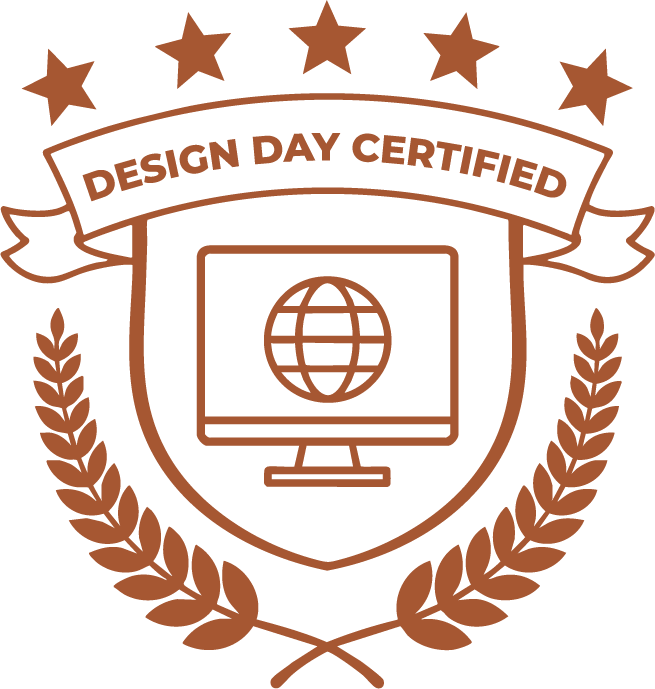In today’s digital age, building a strong brand presence is essential for any business looking to thrive in a competitive marketplace. With consumers increasingly relying on the internet to make purchasing decisions, it is crucial to have a solid digital marketing strategy in place to boost brand awareness. 8 proven strategies that can help you effectively enhance your brand visibility and reach your target audience. From creating compelling content that resonates with your audience to leveraging social media and influencer marketing, By implementing these strategies, you can establish your brand as a trusted authority in your industry, attract more leads, and ultimately drive more conversions. So, let’s dive in and discover how you can take your brand awareness to new heights through digital marketing.
Importance of Brand Awareness for Businesses
Brand awareness plays a crucial role in the success of any business. It allows consumers to recognize and remember your brand, which leads to increased trust and loyalty. When consumers are aware of your brand, they are more likely to consider purchasing your products or services, even when faced with other options. A strong brand awareness strategy can give you a competitive edge in the market, helping you stand out from the crowd and attract new customers. Additionally, brand awareness contributes to building a positive brand image, which can result in increased brand reputation and customer advocacy.
To effectively boost brand awareness, you need to understand your target audience and their preferences. By knowing your audience, you can tailor your marketing efforts to understand them and create a deeper connection. Conducting market research, analyzing customer data, and creating buyer personas are effective ways to gain insights into your target audience. With this information, you can develop a targeted brand awareness strategy that will maximize your reach and impact.
Developing a Strong Brand Identity
A strong brand identity is the foundation of successful brand awareness. It encompasses various elements such as your brand name, logo, colors, typography, and overall visual identity. Your brand identity should be consistent across all platforms and touchpoints to create a cohesive and recognizable brand image. It should reflect your brand’s values, personality, and unique selling proposition. When developing your brand identity, consider your target audience and what speaks to them. Your visual elements should be visually appealing and aligned with the audience’s preferences. Additionally, your brand messaging should be clear and consistent across all channels. By creating a strong brand identity, you can establish a memorable and distinct brand presence that stands out in the minds of your audience.
If you would like help with your brand design, please let us know. We would love to work with you to bring your new brand to life! Our One Day Brand is a really great option for small business owners who are either just getting started or who have been in business for a couple of years and are ready for a new look.
You can learn more about our One Day Brand offer here.
Utilizing Social Media Platforms for Brand Awareness
Social media has revolutionized the way brands connect with their audience and promote their products or services. With platforms like Facebook, Instagram, Twitter, LinkedIn, and YouTube offer a wide range of opportunities to increase brand awareness. To effectively utilize social
media for brand awareness, it is essential to identify the platforms where your target audience is most active.
Once you have identified the relevant social media platforms, create compelling and engaging content that resonates with your audience. Use a mix of your brand fonts 2-3, images, videos, and infographics to capture attention and encourage social sharing. Engage with your audience by responding to their comments and messages promptly. Collaborate with influencers or industry experts to amplify your brand’s reach. Social media advertising can also be a powerful tool to enhance brand visibility by targeting specific demographics and interests.
Creating Engaging and Shareable Content
Creating high-quality, engaging, and shareable content is one of the most effective ways to boost brand awareness. When your content resonates with your audience, they are more likely to engage with it and share it with their networks, thereby expanding your brand’s reach. Content can take various forms, including blog articles, videos, infographics, podcasts, and social media posts.
To create engaging content, start by understanding your audience’s pain points, interests, and preferences. Conduct keyword research to identify topics that are relevant and in-demand. Use storytelling techniques to captivate your audience and make your content more memorable. Incorporate visuals, such as images and videos, to make your content more visually appealing. Ensure that your content is optimized for search engines by incorporating relevant keywords and providing valuable information.
Influencer Marketing for Brand Exposure
Influencer marketing has gained immense popularity in recent years and has become an effective strategy for boosting brand awareness. By collaborating with influencers who have a large and engaged following, you can tap into their audience and leverage their influence to promote your brand. When choosing influencers, consider their relevance to your industry and target audience, as well as their authenticity and engagement rates.
Collaborating with influencers can take various forms, including sponsored content, product reviews, social media takeovers, and influencer events. Ensure that the partnership is mutually beneficial and aligns with your brand values. By leveraging the reach and credibility of influencers, you can significantly increase your brand’s exposure and reach a wider audience.
Leveraging Search Engine Optimization (SEO) for Brand Visibility
Search engine optimization (SEO) plays a crucial role in increasing your brand’s visibility in search engine results pages (SERPs). By optimizing your website and content for relevant keywords, you can improve your organic rankings and attract more targeted traffic. SEO involves various tactics, including keyword research, on-page optimization, link building, and technical optimization.
Start by conducting keyword research to identify the keywords that are relevant to your brand and have a high search volume. Incorporate these keywords naturally into your website’s content, meta tags, and headings. Optimize your website’s performance, mobile responsiveness, and user experience to improve search engine rankings. Increase your brand’s credibility in the eyes of search engines. Regularly analyze and refine your SEO strategy to ensure that it aligns with the latest search engine algorithms.
Paid Advertising Strategies for Brand Awareness
Paid advertising can be an effective strategy to boost brand awareness and reach a wider audience. Platforms like Google Ads, Facebook Ads, Instagram Ads, and LinkedIn Ads offer various targeting options to ensure that your ads are seen by your target audience. Paid advertising allows you to reach potential customers who may not be aware of your brand and drive them to your website or landing page.
When implementing paid advertising strategies, it is crucial to define your goals and target audience. Create engaging ad copy and visuals that capture attention and entice users to click. Use targeting options, such as demographics, interests, and behaviors, to ensure that your ads are shown to the right audience. Monitor and analyze your ad performance to optimize your campaigns and maximize your return on investment (ROI).
Measuring and Analyzing Brand Awareness Efforts
Measuring and analyzing your brand awareness efforts is essential to determine the effectiveness of your strategies and make informed decisions. There are various metrics and tools that can help you track and analyze your brand’s online presence. Some key metrics to consider include website traffic, social media engagement, brand mentions, share of voice, and sentiment analysis.
Utilize analytics platforms, such as Google Analytics and social media analytics tools, to track the performance of your website and social media channels. Set up goals and conversion tracking to measure the impact of your brand awareness efforts on lead generation and conversions. Monitor brand mentions and sentiment on social media platforms to gauge the perception of your brand. Regularly review and analyze your data to identify trends, strengths, and areas for improvement.
Conclusion
Boosting brand awareness through digital marketing is a multifaceted process that requires a strategic approach. By understanding your target audience, developing a strong brand identity, utilizing social media platforms, creating engaging content, leveraging influencer marketing, optimizing for search engines, implementing paid advertising strategies, and measuring your efforts, you can effectively enhance your brand’s visibility and reach. Remember that building brand awareness is a continuous effort that requires regular evaluation and refinement. By implementing these proven strategies, you can establish your brand as a trusted authority in your industry, attract more leads, and ultimately drive more conversions.
—
I hope you found these proven strategies helpful in boosting your brand awareness through digital marketing. Remember, building brand awareness takes time and effort, but with a solid strategy in place, you can make significant progress. Implement these strategies, adapt them to your specific business needs, and watch your brand awareness soar. Good luck!










